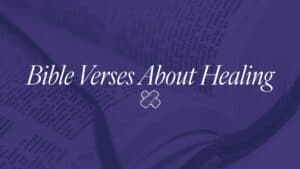Someone troubled by abortion guilt is more likely to seek help online anonymously than to confide in anyone they know. Whether an abortion happened hours or decades ago, it can cause guilt that grows into a deep root of shame. Shame fosters a sense of otherness. It’s not a matter of doing something wrong but of being wrong. Feeling different, defective in some way–and believing no one understands. This belief can lead to secrecy, suppression and unhealthy coping methods.
Feeling Abortion Guilt
Guilt itself is not inherently destructive. Much like physical pain, guilt is a symptom. It tells us something is wrong. We don’t like feeling pain or guilt; our instinctive reaction is to make it stop. That’s a normal response to any unpleasant or distressing sensation.
Abortion guilt is no different. Anyone experiencing sadness and regret after an abortion won’t find peace by denying, ignoring, stuffing or self-treating the pain. Trying to stop a symptom without addressing the cause can bring short-term relief. But the situation eventually deteriorates, worsening the long-term outcome.
Coping with Abortion Guilt
For anyone struggling with post-abortion sadness, guilt or regret: don’t let shame keep you from seeking help. Whether the abortion decision was yours, your partner’s or you were otherwise involved, recovery resources are available. There are compassionate, non-judgmental people equipped and ready to help you. God has already made provision for your healing!

Should I Feel Bad About an Abortion?
You can be free from abortion guilt.
No matter what you’ve done or how you feel, you haven’t gone too far for God to restore you. Jesus died on the cross for every sin, including abortion. He rose to life to give us new life: forgiven, without shame, knowing Him, unconditionally loved. God wants us to receive His blessings and live like we’re fully known and loved–because we are! We choose this life of freedom one day at a time.
“Therefore there is now no condemnation [no guilty verdict, no punishment] for those who are in Christ Jesus.”
Romans 8:1
My Personal Story
When I struggled with self-condemnation, I wore a bracelet for two years that was engraved with one word: FORGIVEN. I needed that constant reminder of who I am in Christ to overcome the enemy’s lies. Forgiveness and freedom are central to the Gospel! Like the wind, we can’t see them directly. But we see evidence of their power in the lives of dedicated Jesus followers.

I had no doubt this was real–for other people. It was hard to imagine complete freedom from abortion guilt could be my reality. Therapy and psychiatric care reduced my symptoms and addressed some underlying issues but not the root cause. God stirred hope in my heart when I heard about a local pregnancy center’s abortion recovery program. With a small group of women, I worked through the Bible study “Forgiven and Set Free.” We supported each other, learned to apply God’s Word in our struggles, and ultimately discovered transformative forgiveness and freedom.
Through my years of keynote speaking for churches and pregnancy centers, I’ve met countless believers with similar stories. Women are delivered from crushing guilt, living whole, joyful lives and serving others.
I’ve also encountered many women–and several men–who quietly approach me after an event. They confide, “I’ve never told anyone this, but…” Their abortion guilt has festered for years or even decades. But God stirred up hope as they heard my testimony. Freedom is possible! When we drag guilt and shame into the light of Jesus, those chains will break.
Recovery is hard work, but the peace and abundant life that awaits is worth every effort. And no one is alone on the journey.
Overcoming Abortion Grief
When women experience abortion guilt and other distress, questions arise. “Is sadness normal after an abortion?” “I feel guilty because I’m relieved. Should I feel bad about an abortion?” “My regret is depressing. How can I get over this?”
Finding reassurance on the internet is unlikely. Claims that abortion poses no inherent risk to mental health are everywhere. Typically, such claims are represented as fact, proven by “scientific research.”
The fact is there is no conclusive scientific evidence regarding abortion’s effect on mental health. Observational studies have inherent weaknesses, and experimental study of abortion is ethically impossible. Scientific research simply cannot resolve this question.
For people who pursue abortion recovery, each path is unique. The process can involve individual counseling, support groups, chat/text/phone hotlines, Rachel’s Vineyard weekend retreats and more. It’s not feasible to gather data about the number of people whose abortion guilt adversely affects their mental health. And there’s no way to know how many women–and men–seek help to recover from past abortion decisions.
You’re Not Alone
The old pro-choice mantra that abortion should be “safe, legal, and rare” has evolved. Modern activists want abortion to be “safe, legal, and accessible.” We should view abortion as an ordinary aspect of women’s healthcare, not an outlier. If a woman experiences post-abortion guilt or distress, it’s probably due to social stigma and pressure, not the abortion itself.
Advocates for reproductive rights often cite the commonness of abortion to normalize it. Recent data shows that 1 in 4 women in the US will have an abortion by the age of 45. But a potentially traumatic experience isn’t less stressful because of its frequency. Car accidents, for example, are no less upsetting because millions of people have car accidents. The commonness of abortion indicates a tragic number of lives lost and irreparably damaged–it doesn’t make abortion “normal.”

Far too many people suffer from abortion guilt in silence. This sense of isolation can cause mental distress, emotional and relational difficulties, addiction, and other issues. But there is always hope!
To reach our free counseling line, call 1-800-A-FAMILY or connect online. We can help.
There are caring, understanding people equipped and ready to help you. God wants you to experience the transformational forgiveness and freedom we find in Christ. He is trustworthy to provide all you need for complete healing. Take a step and see for yourself.
















